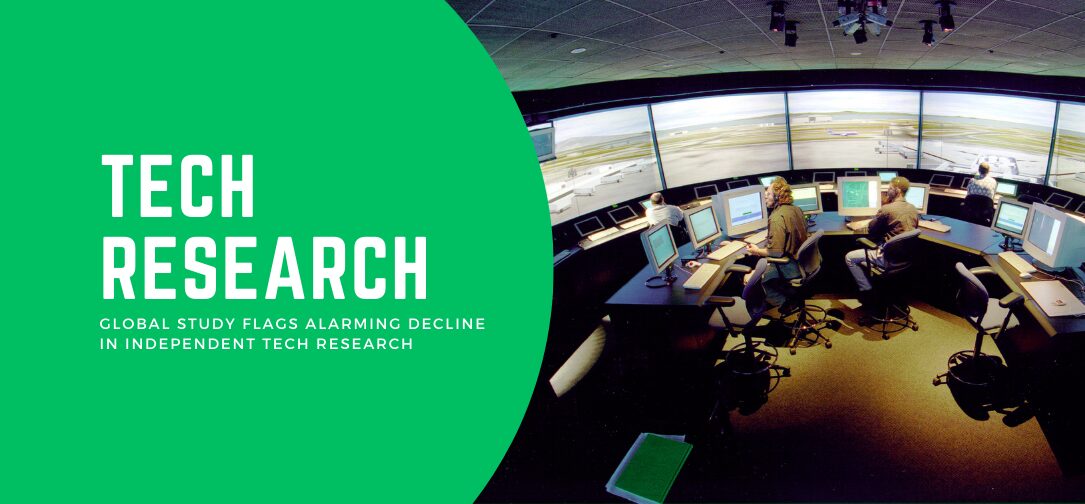Independent researchers studying the effects of artificial intelligence, social media, and digital platforms say their work is being squeezed just as reliance on these systems grows. A new report from the Coalition for Independent Technology Research (CITR) warns that without stronger support, society risks losing its ability to scrutinize the technologies driving economic and political life.
The report, The State of Independent Technology Research 2025: Power in Numbers, compiles surveys and interviews with researchers on six continents. It paints a stark picture: shrinking access to data, dwindling funding, and mounting harassment are making independent study nearly impossible. CITR argues that research into technology’s impact should be treated as public infrastructure, on par with health and education, rather than left to compete with corporate agendas.
“The gap between what these companies are worth and what we as a society invest to understand their impact is staggering,” said Brandi Geurkink, Executive Director of the Coalition for Independent Technology Research. “What we are witnessing is the dismantling of the independent checks we need on the most powerful technologies in human history. This is dangerous for our society and democracy.”
Findings in the report highlight three key challenges. Sixty percent of respondents said they face barriers to the data needed for analysis. Eighty-five percent identified funding as their greatest constraint, leaving many dependent on industry money that can compromise independence. Nearly 70% reported personal or professional risks, including harassment, legal threats, and surveillance.
These pressures have already altered the field. Several researchers have abandoned projects after losing access to platform data, while others have faced lawsuits that drained resources. The Coalition warns this erosion leaves the public reliant on company-funded studies, which often avoid questions that could trigger regulatory or reputational consequences.
“This is not only a crisis for researchers, it’s a crisis for our rights to information about how technology is impacting our children, our communities, and our societies at large,” said Nabiha Syed, Board Member of the Coalition for Independent Technology Research. “Independent researchers play a critical role in holding powerful technology players to account. But without support and protection, their work and the public’s ability to understand and respond to tech’s impact is at risk. We need to treat independent tech research as a public good, just like public health or education.”
The situation resembles past clashes between independent science and powerful industries. Researchers who raised alarms about tobacco, pollution, or climate change were met with campaigns to undermine their credibility. The Coalition sees today’s environment for technology research as part of the same pattern, with trillion-dollar companies working to define narratives about their products while sidelining external scrutiny.
The timing is critical. Generative AI tools are being deployed in workplaces and schools, biometric technologies are reshaping security systems, and social media platforms continue to influence politics and culture worldwide. Yet the capacity to evaluate these shifts independently is shrinking.
Independent research has provided many of the breakthroughs that informed public debate over technology. Studies revealed how recommendation algorithms steer harmful content toward young users, how facial recognition struggles with racial and gender accuracy, and how gig platforms undermine labor protections. Each of these findings sparked legislation and policy reform.
Without similar efforts, the Coalition warns, harmful systems could go unexamined for years, entrenching risks to mental health, equity, and democracy. Relying on corporate research alone, it argues, is akin to asking the tobacco industry to define the health effects of smoking.
CITR, which includes nearly 500 members across 45 countries, is attempting to strengthen the field through advocacy and mutual aid. The group provides support for researchers facing harassment, pushes for legal protections around data access, and coordinates cross-border collaboration to resist censorship. It is also lobbying for new funding streams insulated from corporate influence, emphasizing that philanthropy alone cannot fill the gap.
At the heart of the report is a call to treat research on technology’s societal impact as a public good. Hospitals prepare societies for health crises, schools for economic participation. Independent research institutions, the Coalition argues, prepare society to navigate technological disruption.
The report recommends dedicated public funding to ensure that knowledge about digital systems remains in the public domain, not controlled by the corporations deploying them. This, it says, is necessary to maintain democratic accountability in an era where technology underpins communications, finance, education, and national security.
The risks outlined in the report go beyond academic freedom. They touch directly on civil rights, labor markets, and governance. If independent research collapses, policymakers will be forced to rely on information filtered through corporate priorities, ceding public oversight of technologies that are now integral to daily life.
The Coalition concludes with a clear warning: without systemic investment, independent research will wither just as the stakes are highest. Protecting it, by contrast, offers a path to informed decision-making and greater accountability for some of the most powerful companies in history.



































